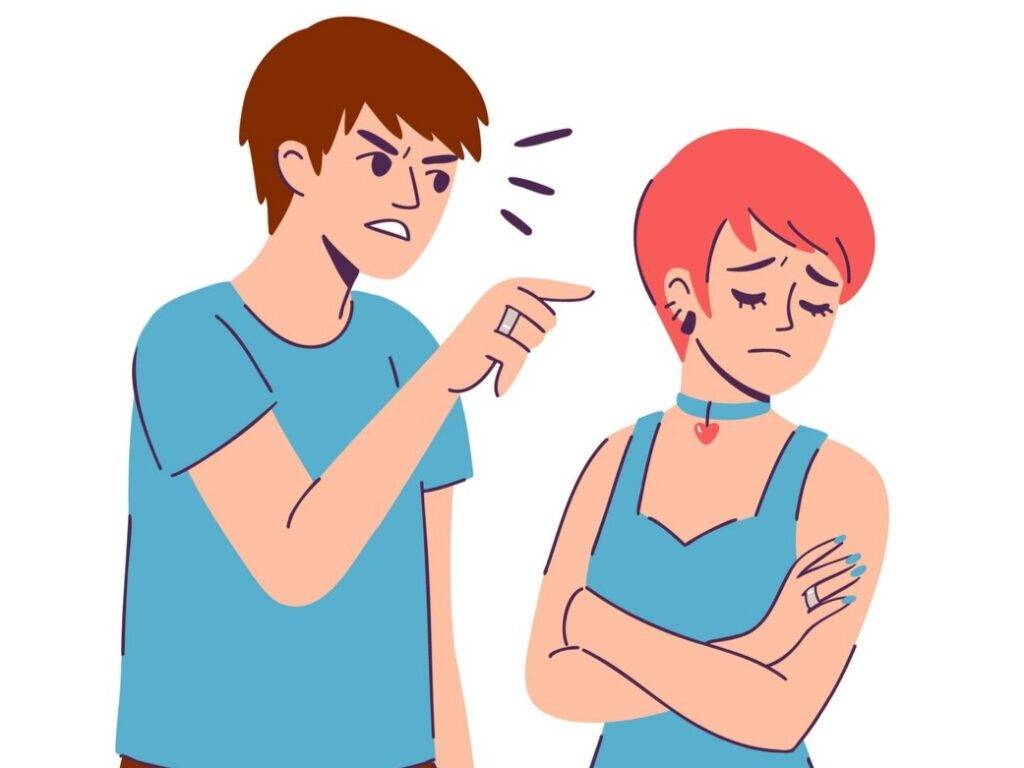How to Get Over a Break Up: Transform Pain into Personal Growth

Breaking up is one of the most challenging experiences a person can go through. The emotional turmoil can feel overwhelming, as if your world has been turned upside down. In those initial days, it can be nearly impossible to see a future without the pain you’re experiencing. But as difficult as it is, a breakup can also be an opportunity for significant personal growth. This article will explore how to navigate through the stormy seas of a breakup and emerge stronger on the other side.
The Reality of Breakups: Why They Hurt So Much
Breakups suck—there’s no way around it. They can make you feel like the ground has been pulled out from under you, leaving you disoriented and lost. The pain can be especially intense because relationships are often a significant source of validation and emotional support. When that source is suddenly cut off, it can feel like you’ve lost a part of yourself.
For many people, the immediate aftermath of a breakup is a period of deep emotional pain. It’s common to feel like this pain will last forever, but it’s important to remember that these feelings are temporary. Over time, the pain will lessen, and you will start to see the breakup in a new light.
Why Breakups Are Harder for Men
While breakups are difficult for everyone, they can be particularly tough for men. This is partly due to societal expectations that discourage men from expressing their emotions openly. As a result, men often struggle to process the intense emotions that come with a breakup. Additionally, men may find themselves suddenly deprived of validation, which they may have primarily received from their partner.
For men, the shift from being in a relationship to being single can feel like going from having a source of constant validation to having none at all. This sudden lack of validation can be jarring and contribute to feelings of loneliness and worthlessness.
On the other hand, women often receive more social support after a breakup. They may have friends who rally around them, offering comfort and reassurance. Women also tend to have an easier time getting back into the dating scene, which can further cushion the blow of a breakup.
The Growth Potential in a Breakup
Despite the initial pain, breakups can be incredibly beneficial in the long run. While women may receive immediate validation and support after a breakup, men often experience significant personal growth. This growth comes from the need to confront and process difficult emotions, which can lead to greater self-awareness and emotional resilience.
When a relationship ends, it’s easy to focus on the negatives—the loneliness, the loss of companionship, and the uncertainty about the future. However, this is also a time of opportunity. Without the distraction of a relationship, you have the chance to focus on yourself and your personal development.
Avoiding the Rebound Trap
One of the most common mistakes people make after a breakup is jumping into a rebound relationship. This is often done to avoid the pain of being alone or to prove to oneself (and others) that they are still desirable. However, rebound relationships rarely lead to long-term happiness and can actually delay the healing process.
It’s important to give yourself time to process the breakup and reflect on what went wrong in the relationship. This period of introspection is crucial for your personal growth and will help you avoid making the same mistakes in future relationships.
Embracing the Pain: Why It’s Necessary for Growth
Pain is an inevitable part of the breakup process, but it’s also a catalyst for growth. By allowing yourself to fully experience the pain, you give yourself the opportunity to learn and evolve. Avoiding the pain by jumping into a new relationship or distracting yourself with other activities may provide temporary relief, but it won’t lead to long-term healing.
Instead of running from the pain, lean into it. Acknowledge your feelings and allow yourself to grieve the loss of the relationship. This might involve crying, journaling, or talking to a trusted friend or therapist. Whatever method you choose, it’s important to let yourself feel the emotions that come up.
Understanding the Importance of Distance
After a breakup, it’s crucial to establish distance between yourself and your ex. This distance allows you both to heal and move on from the relationship. It can be tempting to stay in contact, especially if the breakup was amicable, but this often prolongs the healing process.
If you must interact with your ex due to shared responsibilities or mutual friends, keep your interactions brief and neutral. Avoid discussing the relationship or trying to rekindle any emotional connection. This distance is necessary for you to fully heal and move forward.
Recognizing the Transformation Ahead
One of the most important things to remember after a breakup is that you’re on the verge of something great. It may not feel like it right now, but this experience will ultimately lead to significant personal growth. Breakups force you to confront aspects of yourself that you may have been ignoring and to make changes that will benefit you in the long run.
This transformation is not immediate, and it will take time. But if you allow yourself to fully experience the pain and use it as a tool for growth, you’ll come out the other side stronger and more self-aware.

Why You’re Lucky to Experience This Pain
It might sound counterintuitive, but you’re lucky to be going through this breakup. The pain you’re experiencing is a sign that you’re on the cusp of a major transformation. While it doesn’t feel good now, this pain is pushing you to grow in ways that you wouldn’t have otherwise.
Many people go through life without ever being truly challenged. They avoid difficult emotions and stay in their comfort zones. But you, on the other hand, are being forced out of your comfort zone. This is an opportunity to reinvent yourself and to become the person you were meant to be.
Focusing on Your Future: What’s Next?
Once you’ve given yourself time to heal, it’s important to start thinking about your future. What kind of life do you want to create for yourself? What goals do you want to achieve? Use this time to focus on your personal development and to pursue the things that make you happy.
This might involve setting new goals, picking up a new hobby, or reconnecting with old friends. Whatever you choose, make sure it’s something that brings you joy and fulfillment. This is your chance to create a life that you love, independent of any relationship.
The Role of Self-Care in Healing
Self-care is essential during the healing process. This doesn’t just mean taking bubble baths or treating yourself to something nice (though those things can help). Real self-care involves taking care of your mental, emotional, and physical health.
This might involve regular exercise, eating nutritious foods, and getting enough sleep. It could also mean setting boundaries with people who drain your energy or seeking therapy to help process your emotions. Whatever form it takes, self-care is about prioritizing your well-being and making sure you’re taking care of yourself during this difficult time.
Why It’s Important to Let Go of Your Ex
One of the hardest parts of a breakup is letting go of your ex. It’s natural to want to hold onto the relationship, especially if you still have feelings for them. But holding onto the past prevents you from moving forward.
Letting go doesn’t mean you have to forget about your ex or the relationship. It simply means accepting that the relationship is over and allowing yourself to move on. This might involve forgiving your ex (and yourself) for any mistakes that were made, and letting go of any lingering resentment or anger.
How to Rebuild Your Life After a Breakup
Rebuilding your life after a breakup is a gradual process. It starts with small steps, like reconnecting with friends, picking up a new hobby, or setting new goals. Over time, these small steps add up, and you’ll find yourself feeling more like yourself again.
It’s important to be patient with yourself during this process. Healing takes time, and it’s okay to have days where you still feel sad or angry. The key is to keep moving forward, even if it’s just one small step at a time.
Why Breakups Are a Blessing in Disguise
As painful as breakups are, they can also be a blessing in disguise. They force you to confront parts of yourself that you may have been ignoring and to make changes that will ultimately lead to a happier and healthier life. Breakups also give you the opportunity to learn from your mistakes and to approach future relationships with more wisdom and self-awareness.
While it may be hard to see it now, this breakup is likely the best thing that could have happened to you. It’s pushing you to grow and to become the best version of yourself.
The Transformative Power of Pain in a Breakup
Breakups are like emotional earthquakes that shake your world, leaving you in pieces. While the pain feels unbearable at the moment, it’s crucial to understand that this pain has a purpose. It’s a catalyst for profound personal growth—a transformation that, although difficult, can elevate you to a higher level of understanding, resilience, and self-awareness. In this section, we’ll delve into how to harness the transformative power of pain during a breakup and use it to rebuild yourself stronger and better than before.
The Path to Personal Growth: Understanding the Energy Levels of a Breakup
When you’re going through a breakup, you’re essentially moving through different levels of emotional energy, much like the stages of grief. These levels range from apathy to anger, to forgiveness, and eventually to happiness. Each stage has its own set of challenges and lessons, and navigating them successfully is key to your personal growth.
Apathy: The Initial Stage of Emotional Numbness
The first stage you’ll encounter is apathy. This is where you feel lost, hopeless, and utterly disconnected from everything around you. It’s as if the breakup has drained you of all energy and enthusiasm for life. You might find yourself thinking that you’ll never find someone as good as your ex, or that your life will never be the same again. This stage is painful, but it’s important to acknowledge it as a necessary part of the healing process.
However, it’s crucial not to get stuck in apathy. Many people do, leading to a prolonged period of emotional stagnation. The key to moving forward is to recognize this state for what it is: a temporary phase that, if managed correctly, can be the starting point for your transformation.
Victim Mentality: Shifting Blame and Avoiding Responsibility
As you start to move out of apathy, you may enter the victim mentality stage. Here, you might find yourself blaming your ex, their friends, your circumstances, or even society for your breakup. It’s a natural response to pain, but it’s also a trap. The victim mentality can be comforting because it absolves you of responsibility, but it also keeps you stuck in a cycle of resentment and anger.
While it’s tempting to dwell in this stage, it’s important to realize that blaming others won’t help you grow. The key is to recognize that you have control over your own actions and reactions. This shift in perspective is what allows you to move to the next level of emotional energy.
Anger: Harnessing the Power of Emotion
Anger is a powerful emotion that often follows the victim mentality stage. It can be a motivating force that propels you into action. You might find yourself feeling that the breakup was unfair, that your ex didn’t appreciate you, or that you deserved better. These feelings are valid, but it’s important not to let anger consume you.
Instead, use anger as fuel for positive change. Channel that energy into something constructive, whether it’s hitting the gym, starting a new hobby, or diving into work. Anger, when directed appropriately, can be a powerful catalyst for growth. But remember, the goal is to eventually move past anger, not to let it define you.
Learning and Self-Reflection: The Turning Point
Once the intensity of anger starts to subside, you enter a crucial stage: learning and self-reflection. This is where real progress begins. You start to analyze what went wrong in the relationship—not just what your ex did, but also your own shortcomings. This stage is about taking an honest look at yourself and identifying areas where you can improve.
It’s easy to get stuck in this stage as well, endlessly replaying what you could have done differently. But the key is to use this self-reflection as a tool for growth. Understand what went wrong, learn from it, and then move forward. This is where you start to forgive—not just your ex, but yourself as well.
Forgiveness: The Gateway to Healing
Forgiveness is a powerful stage in your breakup recovery. It’s where you begin to release the anger and resentment you’ve been holding onto. Forgiveness doesn’t mean you condone what happened or that you forget the pain your ex caused. Instead, it means you accept the situation for what it was and allow yourself to move on.
Forgiveness is as much about freeing yourself as it is about letting go of the past. It allows you to shed the emotional baggage that has been weighing you down, opening the door to true healing and personal growth.
Happiness: The Final Stage of Transformation
The final stage in the journey through a breakup is happiness. This is where you can look back on the relationship and the breakup without bitterness or regret. You can appreciate the good times you had and recognize the lessons you learned. You’re no longer defined by the pain of the breakup but by the growth it spurred in you.
At this stage, you might find yourself feeling genuinely happy—not just for what you’ve learned, but for the person you’ve become as a result. You’ve gone through the stages of apathy, anger, learning, and forgiveness, and now you’re ready to embrace life with a renewed sense of purpose and joy.
How to Deal with the Emotional Turmoil
Throughout this journey, you’ll encounter several common thoughts and feelings that can either hold you back or propel you forward, depending on how you handle them. These are the mental roadblocks you’ll need to overcome to reach the final stage of happiness.
“I’ll Never Find Someone as Good as My Ex”
One of the most pervasive thoughts after a breakup is the fear that you’ll never find someone as good as your ex. This belief is rooted in a scarcity mindset, where you view your ex as the best you could ever have. But this is simply not true. The world is full of potential partners who can bring different and even better qualities into your life.
To overcome this thought, focus on the concept of abundance. Trust that as you heal and grow, you’ll attract someone who is an even better match for you. This isn’t just wishful thinking; it’s the reality of personal growth. As you become a better version of yourself, you’ll naturally draw better people into your life.
“I’m Undeserving of Love or Attention”
Feeling unworthy of love or attention is another common thought that plagues people after a breakup. This often stems from the belief that the breakup was entirely your fault or that you’re fundamentally flawed. While it’s important to acknowledge your role in the relationship’s end, it’s equally important to understand that this does not define your worth.
This feeling of unworthiness is not permanent. As you work through the stages of emotional energy and focus on self-improvement, you’ll start to see your own value more clearly. Remember, everyone deserves love and attention, but it’s up to you to first give that to yourself.
“My Friends and Family Think I’m a Loser”
Social pressures can add another layer of pain to a breakup. You might worry that your friends and family view you as a failure because your relationship didn’t work out. This fear can drive you to act out of ego, trying to prove something to others instead of focusing on your own healing.
The truth is, the opinions of others should never dictate your self-worth. Your journey is your own, and the only person you need to prove anything to is yourself. Those who truly care about you will support your growth, not judge your setbacks.
“She Ruined My Life”
It’s easy to place the blame for your pain on your ex, believing that they “ruined” your life. However, this mindset only keeps you stuck in a victim mentality. While your ex may have played a role in your pain, it’s crucial to acknowledge your own responsibility in the situation.
People can only affect your life to the extent that you allow them to. If your ex took advantage of you, it’s important to reflect on how you allowed that to happen. This isn’t about blaming yourself but about taking ownership of your life. By doing so, you reclaim your power and set the stage for healthier relationships in the future.
The Crucial Role of Pain in Personal Growth
Pain is an inevitable part of life, especially after a breakup. But it’s how you respond to that pain that determines whether you’ll grow from it or let it defeat you. The story of Aron Ralston, depicted in the movie 127 Hours, is a powerful example of how pain can lead to profound personal transformation.
Ralston’s ordeal—trapped alone with his arm pinned under a boulder—mirrors the emotional pain of a breakup. Like Ralston, you have two choices: you can either see yourself as a victim of circumstances, or you can use the pain as a catalyst to rise above and redefine your life. Ralston chose to amputate his own arm to save his life, symbolizing the extreme lengths we sometimes need to go to break free from the things that hold us back.
Specific Steps to Take After a Breakup
Having understood the emotional journey and the importance of pain in personal growth, here are some specific steps you can take to move forward after a breakup:
- Allow Yourself to Feel the Pain
Don’t suppress or avoid your emotions. Let yourself fully experience the pain. Cry, grieve, and acknowledge your loss. This might take a few days, weeks, or even longer, but it’s an essential part of the healing process. - Indulge in Things That Feel Good
Once you’ve allowed yourself to feel the pain, shift your focus to activities that bring you comfort and joy. This could be as simple as eating your favorite food, watching your favorite shows, or spending time with loved ones. These activities help you reconnect with the simple pleasures of life. - Engage in Activities That Are Good for You
As you begin to heal, start incorporating activities that are beneficial for your long-term well-being. Exercise, eat healthily, and pursue hobbies that challenge you mentally and physically. These activities will help you rebuild your sense of self-worth and independence. - Find Joy in the Things That Are Good for You
Over time, you’ll start to enjoy the activities that are good for you. You’ll look forward to going to the gym, eating healthy, and spending time with friends. This is a sign that you’re moving out of the victim mentality and into a state of empowerment. - Rebuild Your Life and Embrace Abundance
Now that you’ve started to enjoy the things that are good for you, it’s time to rebuild your life. Focus on reaching a state of abundance in all areas—relationships, career, health, and personal growth. The more you invest in yourself, the more you’ll attract positive experiences and people into your life. - Celebrate Your Transformation
Finally, acknowledge the progress you’ve made. You’ve gone through one of the toughest experiences life can throw at you, and you’ve come out the other side stronger, wiser, and more self-aware. Celebrate this transformation and use it as a foundation for the rest of your life.
Conclusion
Breakups are never easy, but they can be a powerful catalyst for personal growth. By embracing the pain and using it as an opportunity to learn and grow, you can emerge from the experience stronger and more self-aware. Remember that healing takes time, and it’s important to be patient with yourself during this process. With time and self-care, you will move on from the pain and find happiness again.
FAQs
How long does it take to get over a breakup?
The time it takes to get over a breakup varies from person to person. It depends on the length of the relationship, the circumstances of the breakup, and your emotional resilience. Generally, it can take a few months to a year to fully heal.
Should I stay friends with my ex?
It’s generally not a good idea to stay friends with your ex immediately after a breakup. You both need time and space to heal. Once you’ve both moved on, you can reassess whether a friendship is possible.
Is it normal to still love my ex after a breakup?
Yes, it’s normal to still have feelings for your ex after a breakup. These feelings will likely fade over time as you heal and move on.
How can I stop thinking about my ex?
It’s natural to think about your ex after a breakup, but try to redirect your thoughts to other things. Focus on your goals, hobbies, and spending time with friends and family. Over time, thoughts of your ex will become less frequent.
Is it okay to date someone new right after a breakup?
It’s best to give yourself time to heal before jumping into a new relationship. Rebound relationships often don’t last and can prevent you from fully processing your emotions.
What if I see my ex with someone else?
Seeing your ex with someone else can be painful, but remember that their new relationship doesn’t diminish your worth. Focus on your own healing and know that you deserve to find someone who values and appreciates you.




